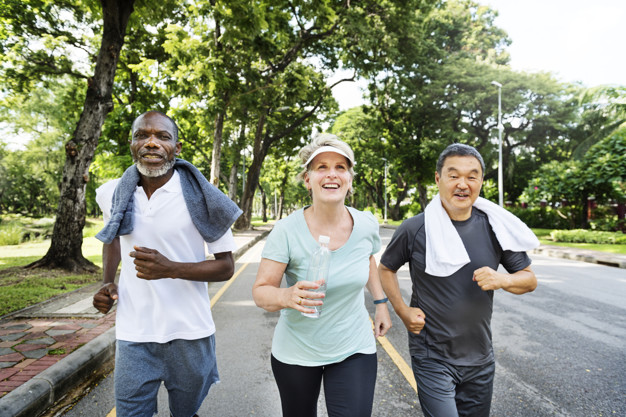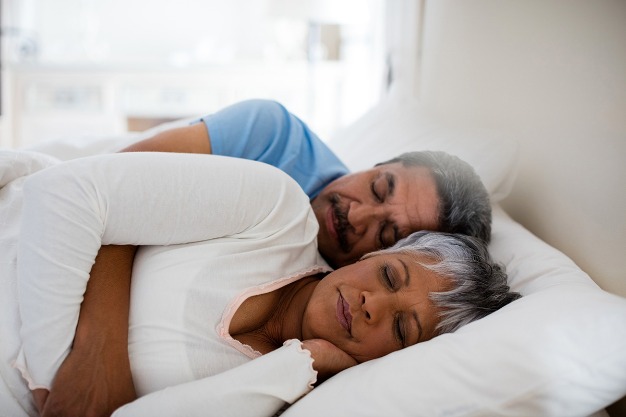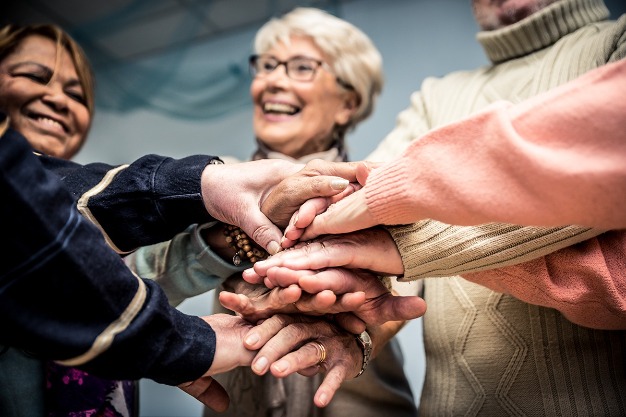
Senior Exercise and Fitness Tips
June 15, 2021
Sleep and aging
As we age, we often experience normal changes in our sleeping patterns, such as becoming sleepy earlier, waking up earlier, or experiencing less deep sleep. However, disturbed sleep, waking up tired every day, and other symptoms of insomnia are not a normal parts of ageing. Sleep is just as important to your physical and emotional health as it was when you were younger.
A good night’s sleep helps improve concentration and memory formation, allows your body to repair any cell damage that occurred during the day, and refreshes your immune system, which in turn helps to prevent disease. Older adults who don’t sleep well are more likely to suffer from depression, attention and memory problems, excessive daytime sleepiness, and experience more nighttime falls. Insufficient sleep can also lead to serious health problems, including an increased risk of cardiovascular disease, diabetes, weight problems, and breast cancer in women.
To improve your quality of sleep it’s important to understand the underlying causes of your sleep problems. The following tips can help you identify and overcome age-related sleep problems, get a good night’s rest, and improve the quality of your waking life.
Insomnia and aging
Tip 1: Understand how sleep changes as you age
As you age your body produces lower levels of growth hormone, so you’ll likely experience a decrease in slow wave or deep sleep (an especially refreshing part of the sleep cycle). When this happens you produce less melatonin, meaning you’ll often experience more fragmented sleep and wake up more often during the night. That’s why many of us consider ourselves “light sleepers” as we age. You may also:
- Want to go to sleep earlier in the evening and wake up earlier in the morning.
- Have to spend longer in bed at night to get the hours of sleep you need, or make up the shortfall by taking a nap during the day.
In most cases, such sleep changes are normal and don’t indicate a sleep problem.
Tip 2: Identify underlying causes for your insomnia
Many cases of insomnia or sleep difficulties are caused by underlying but very treatable causes. By identifying all possible causes, you can tailor treatment accordingly.
- Are you under a lot of stress?
- Are you depressed? Do you feel emotionally flat or hopeless?
- Do you struggle with chronic anxiety or worry?
- Have you recently gone through a traumatic experience?
- Are you taking any medications that might be affecting your sleep?
- Do you have any health problems that may interfere with sleep?
Tip 3: Improve sleep habits
In many cases, you can improve your sleep by addressing emotional issues, improving your sleep environment, and choosing healthier daytime habits. Since everyone is different, though, it may take some experimentation to find the specific changes that work best to improve your sleep.
Encourage better sleep at night
Naturally, boost your melatonin levels. Artificial lights at night can suppress your body’s production of melatonin, the hormone that makes you sleepy. Use low-wattage bulbs where safe to do so, and turn off the TV and computer at least one hour before bed.
Don’t read from a backlit device at night (such as an iPad). If like to read from a tablet or other electronic device, switch to an eReader that requires an additional light source.
Make sure your bedroom is quiet, dark, and cool, and your bed is comfortable. We often become more sensitive to noise as we age, and light and heat can also cause sleep problems. Using a sound machine, ear plugs, or a sleep mask can help.
Use your bedroom only for sleep and sex. By not working, watching TV, or using your computer in bed, your brain will associate the bedroom with just sleep and sex.
Move bedroom clocks out of view. The light can disrupt your sleep and anxiously watching the minutes tick by is a surefire recipe for insomnia.
Tip 4: Use diet and exercise to improve sleep
Two of the daytime habits that most affect sleep are diet and exercise. As well as eating a sleep-friendly diet during the day, it’s particularly important to watch what you put in your body in the hours before bedtime.
Diet tips to improve sleep
Limit caffeine late in the day. Avoid coffee, tea, soda, and chocolate late in the day.
Avoid alcohol before bedtime. It might seem that alcohol makes you sleepy, but it will actually disrupt your sleep.
Satisfy your hunger prior to bed. Have a light snack such as low-sugar cereal, yogurt, or warm milk.
Cut down on sugary foods. Eating a diet high in sugar and refined carbs such as white bread, white rice, pasta, and French fries can cause wakefulness at night and pull you out of the deep, restorative stages of sleep.
Avoid big meals or spicy foods just before bedtime. Large or spicy meals may lead to indigestion or discomfort. Try to eat a modest-size dinner at least 3 hours before bedtime.
Minimize liquid intake before sleep. Limit what you drink within the hour and a half before bedtime to limit how often you wake up to use the bathroom at night.
Tip 5: Reduce mental stress
Stress and anxiety built up during the day can also interfere with sleep at night. It’s important to learn how to let go of thoughts and worries when it’s time to sleep.
- Keep a journal to record worries before you retire.
- On your to-do list, check off tasks completed, list your goals for tomorrow, and then let them go.
- Listen to calming music.
- Read a book that makes you feel relaxed.
- Get a massage from a friend or partner.
- Use a relaxation technique to prepare your body for sleep.
- Seek opportunities during the day to talk face to face with a friend about what’s troubling you.

